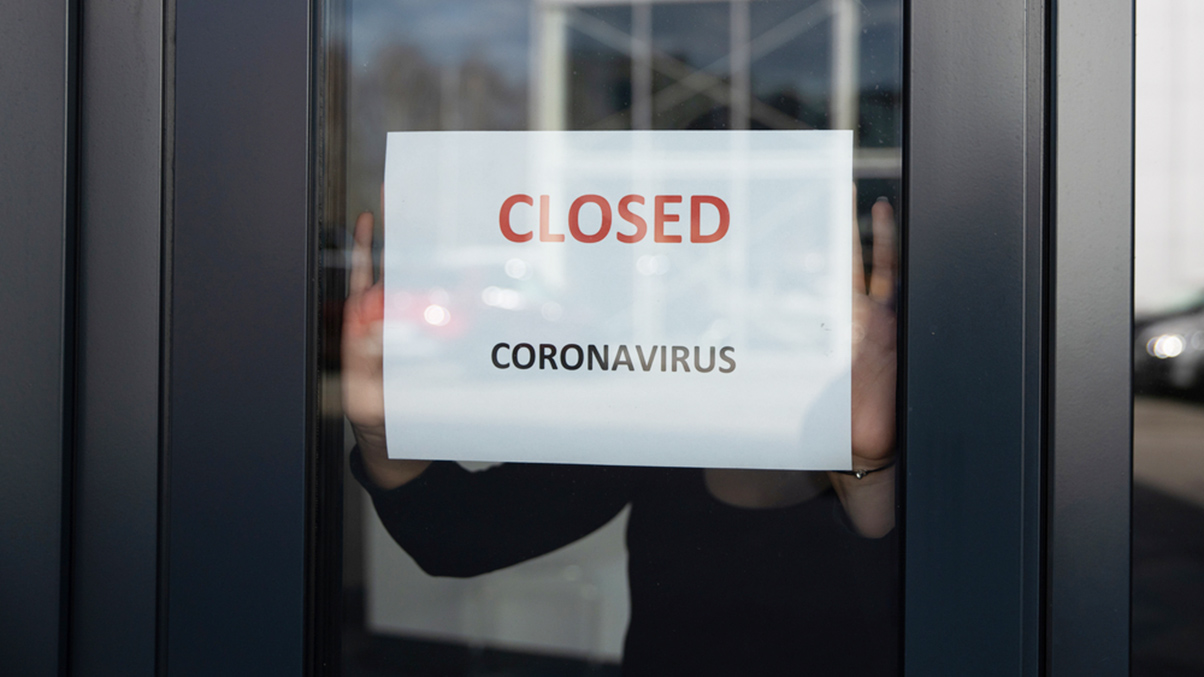Sean Upson, Mo Bhaskaran, Lucy Ward and Stefan Edwards respond to the questions asked by attendees in our webinar, Force majeure – litigation in the wake of Covid-19.
To download a PDF of the below Q&A please click here.
Index
- Contractual meaning of force majeure
- Performance: payment obligations
- Performance obligations other than payment
- Frustration and unfair contract terms
- Sub-contractors
- Cost increases as a result of the force majeure event
- Proof of force majeure
- New contracts
- Employment contracts
- Force majeure and time limits
- Software-as-a-service agreements
Contractual meaning of force majeure
Question 1
Would leaving out a list of force majeure events make a force majeure clause broader (ie from an ejusdem generis point)? So, would simply saying “events outside control” be more likely to cover Covid-19 than a clause with a list that does not cover “disease”?
In principle, the answer to this question is “yes”.
When determining whether or not a particular force majeure clause covers a specific scenario the court is essentially seeking to establish what the words of the agreement mean. In other words: what did the parties agree?
The ejusdem generis principle is one of the tools the court uses. This principle essentially says that where general wording follows a list of prescribed events or specific items, the general wording will be interpreted in the light of the specific list of events or items. For example, if a contractual clause said “apples, pears, oranges or other things”, it is likely that a court would interpret the “other things” as being other things of the same type. It is unlikely that this clause could successfully be applied to aeroplanes. So, in principle, if the clause includes a list of events that do not include diseases or epidemics, then the court is less likely to find that the general term “events outside control” includes Covid-19.
By contrast, if the clause simply referred to “events outside control” without a list, then the ejusdem generis principle is less likely to be used to say that the clause was not intended to cover Covid-19.
Question 2
How would force majeure be interpreted where the force majeure clause in the contract does not actually define what is meant by force majeure, such as in a JCT construction contract?
Force majeure has no standard meaning in English law. Ideally, contracts containing force majeure provisions should define what that term means.
Where a contract contains no definition of force majeure, and the parties do not agree what it means, a court would seek to construe the meaning of the term in the context of the particular contract. While we are not aware of any reported cases dealing with the meaning of force majeure in a JCT contract, there have been many cases where judges have reached a conclusion about whether particular events are, or are not, within the scope of a force majeure clause. In a small number of cases, the courts have considered the meaning of the term force majeure in isolation to be too uncertain to be able to give contractual effect to it.
Question 3
Sean and Lucy mentioned that the force majeure event must be the only reason for non-performance. However, in the first Ebola case (the Mittal case), Mo said there were two justifications proffered: the pandemic and the deterioration of the price of iron ore. Was the price of iron ore considered not relevant as there was, regardless, a force majeure event?
Arcelor Mittal suspended operations in Liberia following declarations of force majeure by contractors working for it. As far as we are aware, the deterioration of the iron ore price was not a factor for the contractors, and, therefore, is unlikely to have affected their ability to declare force majeure.
However, it was cited by Arcelor Mittal (ie, the non-defaulting party) as a factor affecting its operations. So, the fall in the iron ore price appears to have been a reason why Arcelor Mittal may have been happy for its contractors to declare force majeure but not itself a reason to amount to force majeure.
Performance: payment obligations
Question 4
For payment obligations, the force majeure clause doesn’t provide any relief at all even if the party lost every business itself because of Covid-19. Is there anything to be done?
While this would require analysis of the particular wording of an individual agreement, force majeure events rarely hinder or prevent payment obligations and rarely amount to force majeure events. [Examples of possible force majeure events in respect of payment obligations might include a bank collapse, breakdown in bank payment systems (because of IT issues) or a complete collapse of the financial system would require careful consideration of the agreement and the factual circumstances surrounding its formation and performance].
However, there are sometimes other solutions for paying parties seeking to be relieved of payment obligations. For example:
- it is possible that the agreement has been frustrated by the event in question (see questions 7 and 15 (a) below)
- the agreement may contain ‘material adverse change’ provisions, which could allow termination or some other change in the parties obligations; or
- the paying party may be able to argue that the receiving party has been unable to perform because of a force majeure event and it would be unjustly enriched if the payment obligation remained.
Question 5
Where force majeure is exercised by a supplier and the parties agree that it applies, services will be suspended during the force majeure period. Should payment during the suspension also be suspended?
Some force majeure clauses will specifically provide for what happens to payment obligations when performance is suspended. Some other clauses will entitle the non-defaulting party to terminate the agreement if the force majeure event continues beyond a certain time. If a force majeure clause is silent about it, then it is likely that payment obligations are not suspended.
If the clause does not expressly deal with payment, then it is likely to be possible for a paying party to argue that the receiving party will be unjustly enriched at its expense if payment is made (since the service has not been performed). This would justify non-payment or recovery of payment. This would require careful consideration of the agreement and the factual circumstances surrounding its formation and performance.
Question 6
Under a public-private partnership (PPP) project delivery method, a hosting government is providing a revenue guarantee to a special purpose vehicle (SPV) which has entered into an agreement with the government entity. Due to force majeure invoked by the government due to the Covid-19 pandemic, the government entity is refusing to pay the revenue guarantee, which incurs quarterly. Please advise what options the SPV has to get paid.
In general terms, it is unusual for payment obligations to be suspended by force majeure events. A starting point would, therefore, be to look at the agreement and see whether the government entity is entitled to suspend payment. If not, the SPV can pursue the normal court and other remedies to require the government to make payment.
Question 7
In a contract without a force majeure clause, if a supplier of cleaning services stops performing due to strict government restrictions can the other party stop paying? Here, we are not looking at damages for non-performance, just suspending payments since services have been suspended too.
Assuming the customer does not want to terminate the contract or seek damages for breach, then there are two ways to look at this issue.
First, one has to analyse the contract to determine if the payment obligation is dependent on the provision of the cleaning services or an independent obligation. If the former, then the customer will be able to stop payment without itself being in breach.
Secondly, if the payment obligation is an independent obligation, then the customer will likely to be able to suspend payment (or recover payments made) on the basis that the supplier will be unjustly enriched by any payment. See question 3 above.
Question 8
Would it be better to try and negotiate a reduction in payments rather than cancel a service due to force majeure if performance cannot be carried out? Examples include office cleaning, Shreddit, etc.
Typical force majeure clauses give a contractual right to suspend payment while performance is suspended. Less commonly, such clauses allow termination if, for instance, the force majeure event continues for a specified period. You should check your clause to see if it allows termination (cancellation).
Depending on your clause, whether to terminate (cancel) or renegotiate is fact-specific and depends on a range of factors including the contractual rights set out in the specific force majeure clause, the bargaining power and financial stability of the parties, the duration of the agreement and the extent to which the service can be obtained elsewhere. For instance, the customer may want to keep the agreement in place because the price for the services is favourable.
Question 9
What if the performance of a contract by a supplier is not possible as the customer’s building has been closed down and the customer’s staff are working from home? Does the customer have to continue payment? The supplier has not sought to rely on force majeure.
In the scenario you outline, the supplier has ceased performance without invoking force majeure. On the face of it, the supplier is, therefore, in breach of the agreement. Before taking any steps, the customer must carefully check the contract as there may, for example, be an obligation on the customer to grant access to the premises, which it may not be able to do. Careful consideration would need to be given to which party is in breach (and, indeed, both maybe).
Similarly, many contracts contain a requirement that a customer serves a notice requiring the supplier to make good on its failure to perform before taking any further steps.
Finally, it is important to note that some force majeure clauses automatically suspend performance without requiring notification.
Question 10
An agreement for the supply of services has a force majeure clause allowing either party to terminate the agreement if the force majeure event lasts longer than a month. The party providing the service is not invoking force majeure. Can the party whose only obligation is to pay, refer to a force majeure happening and then terminate if the force majeure has persistent for a month? To clarify, force majeure is not used as a reason to not pay for the services, but only to terminate.
In the scenario you describe there appear to be two possibilities: if the service provider is continuing to perform and has not invoked force majeure, then it seems unlikely that a force majeure event has occurred. If, however, the service provider has stopped performing but not invoked force majeure clause then (i) it would be in breach of the agreement and (ii) from your description of the clause the customer can terminate for force majeure. In those circumstances, it would be more usual for the customer to seek to enforce on the breach (which may include termination) rather than use the force majeure clause because the former is likely to allow the customer to claim damages for non-performance whereas the latter does not.
Question 11
Can a customer use a force majeure event to cancel an order already made under an agreement that the supplier has yet to perform?
Typically a customer’s obligation is to pay for the goods or services in question and so force majeure events rarely prevent a customer from performing its obligation, which is to pay [Although we have noted above certain force majeure events such as a bank failure which could affect a payment obligation. It is also possible that a customer has additional obligations to assist with the design of goods or to male premises or staff available and in these latter cases force majeure could apply to the customer]. If the supplier is able to perform, the customer is unlikely to be able to use force majeure to terminate an order.
Performance obligations other than payment
Question 12
Can force majeure apply to certain obligations or does it have to apply to all obligations in the contract (for example, if you have a severance clause)?
Yes, force majeure provisions can be drafted to apply to some obligations in the contract and not others although this is unusual and most clauses apply generally to the contract as a whole.
Even if the force majeure clause applies generally, it may only affect certain obligations. If only some obligations become impossible to perform, then the performing party is likely to be obliged to continue to perform those obligations which are possible. For example, a force majeure event could affect clauses requiring delivery of goods without affecting confidentiality provisions elsewhere in the contract.
One should also bear in mind that if Covid-19 frustrates the contract, then frustration discharges the contract as a whole.
Question 13
In light of Lucy’s and Mo’s comments that the force majeure event must be the cause of non-performance, will the courts look at other activities being undertaken by the party at the time they try to rely on force majeure?
For example, if a research organisation stops working on research projects due to government restrictions, but contributes to the Covid-19 response? Is this likely to impede its success?
Potentially, the court will look at such issues as a matter of evidence to determine if the force majeure event genuinely hindered or prevented performance. If a party suspends contractual performance arguing that a force majeure event has occurred and performance is impossible, but then continues operations undertaking similar activities, that may (depending on the precise nature of the activities) be powerful evidence that performance was not impossible.
Generally, the courts will determine disputes on the terms of the agreement and will not make value judgments as to the value or social benefit of different activities.
Question 14
Can a customer claim force majeure where the government has not ordered a shutdown of that business? They may argue that they cannot accept delivery on health and safety grounds.
The customer is unlikely to be able to declare force majeure if its business has not been closed down by the government. This is because delivery at the business premises, or at an alternative location, is not likely to be prevented. The party seeking force majeure is generally required to take steps to avoid the force majeure event from occurring and, depending on the circumstances, this may require the customer to designate an alternative place for delivery or to ask the supplier to hold the goods for collection.
Frustration and unfair contract terms
Question 15 (a)
Where does the Law Reform (Frustrated Contracts) Act 1943 fit in?
The Law Reform (Frustrated Contracts) Act 1943 deals with the consequences of a frustrating event having occurred and, in particular, with what happens in relation to payments and the performance of obligations that took place before the frustrating event occurred. In summary, where the future performance of obligations is discharged by a frustrating event, and where it is in all the circumstances just to do so,
- money paid before the frustrating event will be returned,
- the parties will be excused from paying further sums where these became due before the frustrating event but have not actually been paid,
- where a party has incurred expenses it may retain payments, or receive payment which was due but had not been paid, up to the value of the expenses, and
- where a party has received a valuable benefit (but not money) before the frustrating event, it may be required to pay a just sum for it.
Where a contract contains force majeure provisions that are wide enough to cover the event which has occurred, then the parties may not be able to invoke the doctrine of frustration, in which case the Act would have no application. Note, frustration cannot be declared where the contract addresses the risk that has arisen and, arguably, the force majeure clause addresses the risk; hence, the force majeure clause displaces the doctrine of frustration.
Question 15 (b)
Consumer Rights 2015 – unfair terms. Say a consumer pays in advance for a service. Regulations make performance illegal, and the force majeure clause says the supplier keeps all the money. Is this an unfair term?
You are right that the Consumer Rights Act 2015 (CRA 2015) imposes a requirement that all terms in consumer contracts be fair.
The question of whether the particular clause you describe is unfair (within the meaning of the CRA 2015) would need to be considered in the context of the nature of the contract and the circumstances which existed when rights and obligations arose (section 62(5) CRA 2015).
Section 63 and Schedule 2 of the CRA 2015 contains examples of terms which may be considered unfair, and a number of these may be applicable in the situation you describe. However, assessing the fairness of the terms would require consideration of the context as a whole. For example, if the supplier would have been expected to have incurred up front costs in connection with the contract, then the position could be different to a situation where the supplier has incurred no such costs, and the customer’s payment is a windfall.
Sub-contractors
Question 16
Can a sub-contractor claim for escalation of the project costs caused because of the suspension of the sub-contract by the contractor?
It is possible that a claim might arise in such circumstances, but to ascertain the parties’ rights it would be necessary to review the agreement between them, understand the reasons for the suspension of performance, and consider communications between the parties.
Cost increases as a result of the force majeure event
Question 17
Can the party providing the services impose higher prices or share of costs to the client due to the increase of costs on the business to perform due to government restrictions (eg, higher customs fees/pay for full-time equivalents (FTEs) while the services are being suspended)? Or does that party have to take those extra charges alone, as it is obliged to perform anyhow?
In general, a party cannot refuse to perform, or invoke a force majeure clause, to excuse performance merely because its obligations have become more onerous or expensive. So, the supplier will have to bear the extra cost and continue to perform.
However, some contracts do provide for suspension of obligations if they have become more difficult or expensive. It would be necessary to look at the individual agreement to understand whether this applied.
Some agreements also have price escalation or `changed circumstances` clauses, which allow costs (or some costs) to be passed between the parties in some circumstances. Again, any such provisions will be found in the specific contract.
Proof of force majeure
Question 18
In the construction sector, due to quarantine/border restrictions, no foreign workers are allowed on site. What documents are required to seek to prove force majeure, please?
In order to demonstrate that a force majeure event has occurred, the starting point is to look at the specific contract to understand what events qualify as force majeure and whether the clause requires performance to be hindered, on the one hand, or prevented, on the other hand. It is then for the party seeking to declare force majeure to prove that the performance has been hindered or made impossible. In relation to a construction contract, the contractor will likely have to prove two points.
First, that performance is hindered or prevented without access to foreign workers. It is likely to have to prove that it cannot obtain the necessary domestic personnel.
Secondly, it will need to prove that workers cannot come from abroad. This may be relatively straightforward based on documents showing the existence of border restrictions and/or the evidence of, say, employment agencies who can document the position. We note, however, that some industries (for instance, fruit picking) have chartered flights to bring workers in. The contractor may need to prove that this is not a solution.
New contracts
Question 19
For new contracts, how would you refer to/tackle the issue of Covid-19 in force majeure clauses given that it is now enforceable?
As litigation lawyers, we are not able to advise specifically on the drafting of commercial contracts, but consideration should be given to (i) listing epidemics and/or Covid-19 in the list of force majeure events, (ii) adding compliance with government and health and safety advice as a reason for non-performance or as a reason for a price escalation and (iii) allowing options to delay or terminate the contract.
Employment contracts
Question 20
What about employment contracts – furlough or force majeure?
It is very rare for employment contracts in England to contain force majeure provisions. If an employment contract did contain such a clause, then it is possible, depending on the terms of the clause and the nature of the work, that Covid-19 could give rise to a force majeure event. However, while the employee might be able to declare force majeure to excuse non-performance of their employment obligation, it is by no means certain that the employer would be excused from its obligation to pay their salary. Thus, it is possible that even in such a situation, it may be necessary for the employee to be furloughed.
A furlough generally means a leave of absence from the workplace. In response to the Covid-19 outbreak, the UK government introduced the coronavirus job retention scheme whereby employers can be financially supported to retain furloughed workers in employment if certain conditions are met, principally that but for the scheme the employee would have been redundant.
Force majeure and time limits
Question 21
If all activities are locked down in India, everything is at a standstill and it continues further to save human life, can time limit or force majeure apply?
Whether a force majeure event has occurred may vary from contract to contract and must be determined by reference to a specific agreement. Some agreements may require that performance has become impossible to trigger force majeure provisions; others may simply require that it has become more onerous.
Whatever the contractual provision says, the next step is to look at the situation where obligations are to be performed and consider whether the restrictions are such as to trigger the force majeure clause. Lockdown may make some activities impossible, some more difficult or expensive, and may have no effect at all on others.
In each case, it is a question of considering the individual position.
Software-as-a-service agreements
Question 22
What is the case with software-as-a-service agreements? Are those services covered by the force majeure clause at all?
In principle, there is no reason why a software-as-service agreement should not contain a force majeure clause. Because force majeure clauses are contractual provisions, and, therefore, depend on the exact terms of the agreement between the parties, it is not possible to give general advice that will cover all cases.
In general terms, it would be important to understand what the contractual provision says about triggers for force majeure, and then to analyse whether and how the current situation may or may not entitle a party to rely on it. As these contracts generally involve the provision of software by download, possibly the provision of other online services, and payment of consideration, it is not immediately clear why the Covid-19 outbreak would affect the parties’ ability to perform any of their obligations.
Download
To download a PDF of this Q&A please click here.
The webinar recording
To view a recording of the webinar, please click here.
The webinar is free to view but standard registration details are required.
Covid-19 is impacting individuals and companies around the world in an unprecedented way. We have collected insights here to help you navigate the key legal issues you may be facing at this time.
You can find further information regarding our expertise, experience and team on our Commercial Litigation pages.
If you require assistance from our team, please contact us or alternatively request a call back from one of our lawyers by submitting this form.
Subscribe – In order to receive our news straight to your inbox, subscribe here. Our newsletters are sent no more than once a month.









